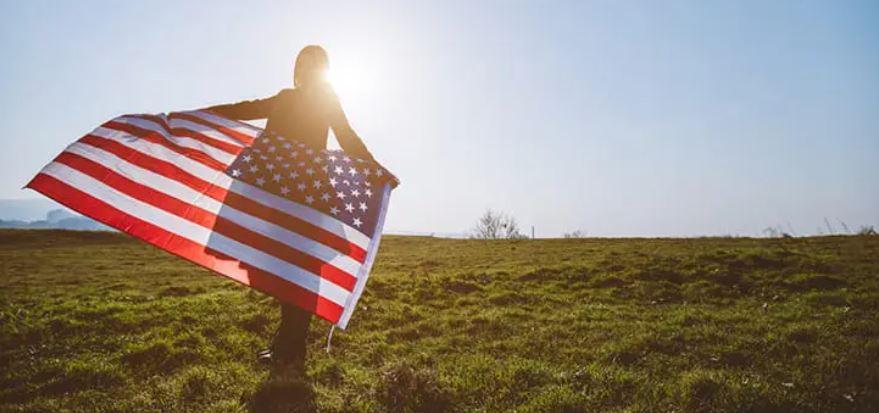On this Independence Day, Americans pause to celebrate the audacious and transformative actions of 1776, when fifty-six visionaries affixed their signatures to the Declaration of Independence, severing ties with the British monarchy. This bold move established a nation that not only endures but also stands as a paragon of strength. Despite wars, pandemics, inequality, and political discord, the essence of what those fifty-six envisioned remains steadfast: a nation whose strength emanates from its citizens’ ability to acknowledge and navigate their differences.
Societal Fractures Threaten Unity
Today, the United States does not face an external adversary akin to the British crown or the Soviet Union during the Cold War. Instead, it is besieged by internal cultural shifts that threaten to erode national unity. This Independence Day weekend serves as a poignant reminder of the peril posed by increasing societal fractures.
These cultural shifts manifest not only in heightened partisan polarization but also in the way Americans interact with one another daily. A notable decline in volunteerism underscores this trend. In the early 2000s, nearly 30% of Americans over the age of 16 reported volunteering at least once in the past year. By 2021, this figure had plummeted to 23%. Although not a linear decline, the trajectory is unmistakably downward. If volunteerism rates mirrored those of the early 2000s, approximately 12 million more individuals would be volunteering annually. Charities are acutely aware of this decline, as they struggle to secure sufficient help. Concurrently, charitable giving has seen a more precipitous decline, with nearly 70% of Americans donating to charitable causes in the early 2000s compared to only 50% in 2018.
The Great Disengagement
The reasons for this disengagement are multifaceted. The COVID-19 pandemic undeniably curtailed in-person socializing, contributing to a withdrawal from communal activities. Additionally, changes to the tax code in 2017, which led to fewer people itemizing deductions, played a role in the decline of charitable donations. However, the overarching cause appears to be a profound disengagement from civic life. Many Americans have lost interest in participating in institutions, whether governmental, religious, or civic. Researchers lament that the United States is becoming a “less charitable nation.”
This disengagement from communal activities coincides with a decline in religious attendance, union membership, and even childbearing, particularly in suburban areas. Parents with children under 18 are more likely to volunteer, yet even this demographic has seen a decrease in formal volunteering. Informal neighborly help, such as babysitting or running errands, is common but does not replace the broader societal benefits of formal volunteerism, which often involves assisting strangers and fostering a sense of community.
Prioritizing Personal Wellness
In recent years, there has been a discernible shift towards prioritizing personal wellness—mental and physical health, and work-life balance. While this focus is generally positive, it can lead to extremes that further social isolation. Entrepreneur Michael Karnjanaprakorn noted that contemporary status symbols include “sabbaticals, long attention spans, quality time with kids, valuing time over money, a slow and calm lifestyle, a meeting-free calendar, having ‘enough,’ early retirement, and a biological age younger than one’s real age.” Notably absent from this list is any mention of community engagement or helping others, despite evidence that social interaction is crucial for overall health.
The Loneliness Epidemic
These trends contribute to a pervasive loneliness epidemic and a weakening of Americans’ understanding and connection to their fellow citizens. The U.S. has historically had a less generous welfare state than other advanced nations, offset by a robust charitable culture. However, as Americans retreat into their immediate social circles, they become less aware of the diverse socio-economic conditions and struggles within their broader communities. Volunteering plays a crucial role in bridging these gaps and fostering a more inclusive and empathetic society.
Government’s Role and Limitations
While the government can address some deficiencies, it cannot compensate for the erosion of civil society. The United States remains the only advanced economy without mandatory paid sick leave or paid vacation days. Furthermore, there is no federal mandate ensuring employees are paid for holidays like July 4th. These gaps should be addressed, but the primary responsibility for revitalizing civil society lies with the citizens themselves.
A Call to Action
In times of crisis and civil strife, Americans have historically risen to the occasion, renewing their commitment to self-governance. Today, current and future generations must re-engage with their communities, not only for the nation’s sake but also for their well-being. This renewed engagement will strengthen the fabric of society, ensuring that the bold experiment in democracy endures.
Conclusion
As we celebrate Independence Day, let us reflect on the imperative to address the alarming fractures within our society. Revitalizing community engagement and reinforcing democratic ideals are essential to preserving the nation’s strength and unity. It is a call to action for every American to contribute to the collective well-being, echoing the resolute spirit of 1776. Let us begin today.
Key Learning Points:
| Topic | Summary |
|---|---|
| Societal Fractures | Internal cultural shifts threaten national unity. |
| Decline in Volunteerism | Significant drop in volunteerism rates over the past two decades. |
| Great Disengagement | Increasing disengagement from civic life and institutions. |
| Prioritizing Personal Wellness | Shift towards personal wellness, often at the expense of community engagement. |
| Loneliness Epidemic | Rising loneliness due to decreased social interaction and community involvement. |
| Government’s Role | Government can address some deficiencies, but cannot replace civil society. |
| Call to Action | Renewed commitment to community engagement and democratic principles is essential. |

Sunil Garnayak is an expert in Indian news with extensive knowledge of the nation’s political, social, and economic landscape and international relations. With years of experience in journalism, Sunil delivers in-depth analysis and accurate reporting that keeps readers informed about the latest developments in India. His commitment to factual accuracy and nuanced storytelling ensures that his articles provide valuable insights into the country’s most pressing issues.



